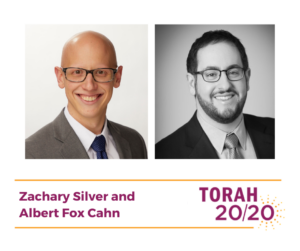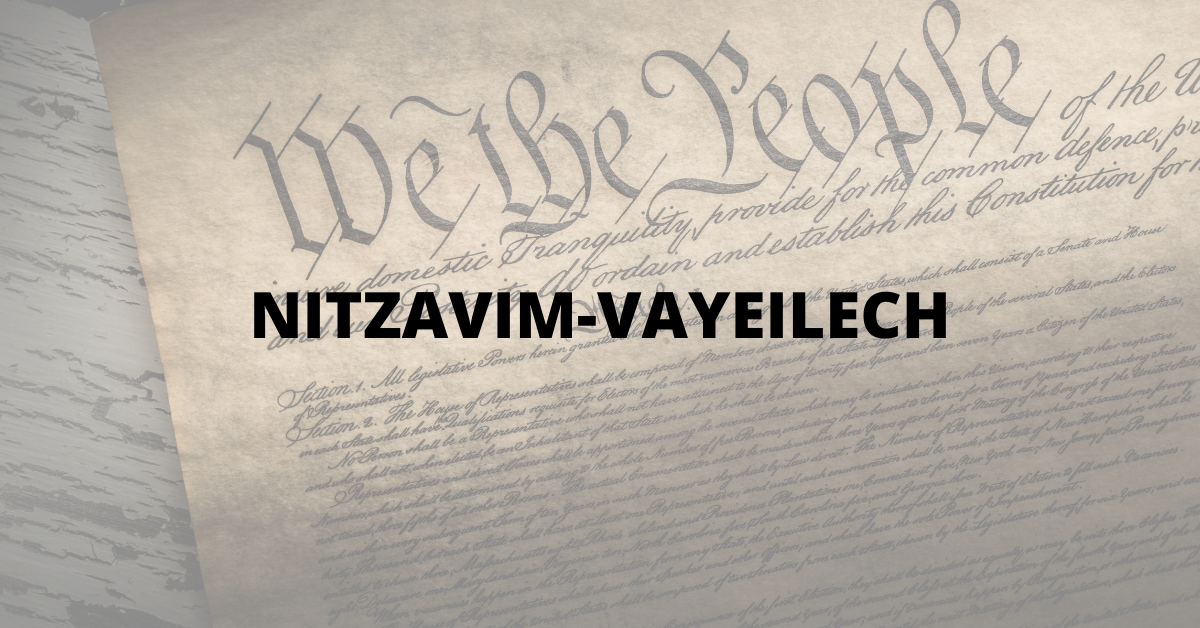A D’var Torah for Parshat Nitzavim/Vayeilech by Albert Fox Cahn and Zachary Silver
Almost two decades after the towers fell, this date still reverberates with their memory. But not merely the hateful acts that stole so much from our country, but the hateful responses that defined us — for a time — as a society. We look back to September 11th to learn, not from what was done to us, but from how we responded to those events as a nation.
At its strongest, our Constitution is a secular covenant, a promise passed down from one generation to the next to protect the values that define and safeguard democracy. We guarantee a voice to those with unwanted views. We guarantee a trial to those accused of the most foul crimes. And we guarantee the right to pray for all people of faith, no matter which God they pray too. But nearly 20 years ago, we turned our back on that covenant, telling our Muslim brothers and sisters that their prayers would be suspect and that they would end up on government watchlists for simply attending mosque. Telling those labeled as “terrorists” that they would be held without trial. And telling millions that their every word would be recorded and judged.
Sign up to receive Torah 20/20 in your inbox each week.
In place of our age-old covenant, we found comfort in new idols. Phrases like “homeland security” and “enemy combatant” took on fearsome new power, as concepts like “due process” and “justice” were written off as bygone relics. In that time, we saw the warning of Nitzavim-Vayeilech, the warning against breaking our covenant in search of empty idols.
In Parshat Nitzavim, Moses tells our ancestors that God’s covenant was not with them alone, but with all the generations who follow. God warns us not to turn away from that sacred compact, promising that through our fidelity to those timeless commandments we would find prosperity and blessings.
Of course, our Constitution is a deeply imperfect covenant. It is the creation of deeply flawed (and, in many cases, irredeemable) founders who tainted it with the sins of slavery and misogyny. But they set forth a new type of covenant — not one carved into stone tablets, but inked on parchment that could be mended in time. Above all, they enshrined the promise that we would strive towards a “more perfect Union.”
Each new generation must struggle to find for itself what it means to become more perfect, but we must also fight off the temptation to worship the new idols of each era. But why do we do it? Why do we turn our backs on the promises of our ancestors to pursue new idols like “homeland security”? The answer is simply fear.
Find more commentaries on Parshat Nitzavim/Vayeilech.
Two decades later, it is easier to see how we were tempted by the idols of that time, but it is still hard to recognize the idols of today. We remember the sheer panic of 19 years ago, and how we longed for someone — anyone — to make us feel safe again. Those who told us that we need only sacrifice a bit of our liberty for safety often gave us neither. Looking back, we remember just how hollow those promises were.
But we didn’t know that at the time — we couldn’t have — and therein lies the trial for each generation. As we see new dangers, we will always be tempted to break our covenant. That is the temptation today, as those longing for power invoke the endless heartbreak of this pandemic, the specter of crime, and so many other threats to entice us to a new array of idols. Again, we are asked to walk away from our covenant, promised that if we just make a few exceptions, if we just sacrifice a few principles, we’ll find a respite from the all-consuming fear of this age.
It’s never easy to reject that offer. It’s never easy to face our fear without that comfort, but it’s always necessary. Even as we struggle to find meaning and joy in our covenants, we can find guidance from our history, find reassurance from our community and find pride in our resolve.
Albert Fox Cahn (@FoxCahn) is the founder and executive director of the Surveillance Technology Oversight Project (S.T.O.P.) at the Urban Justice Center, a New York-based civil rights and privacy group and a fellow at the Engelberg Center for Innovation Law & Policy at N.Y.U. School of Law.
Zachary Silver is a legal fellow at the Surveillance Technology Oversight Project.

